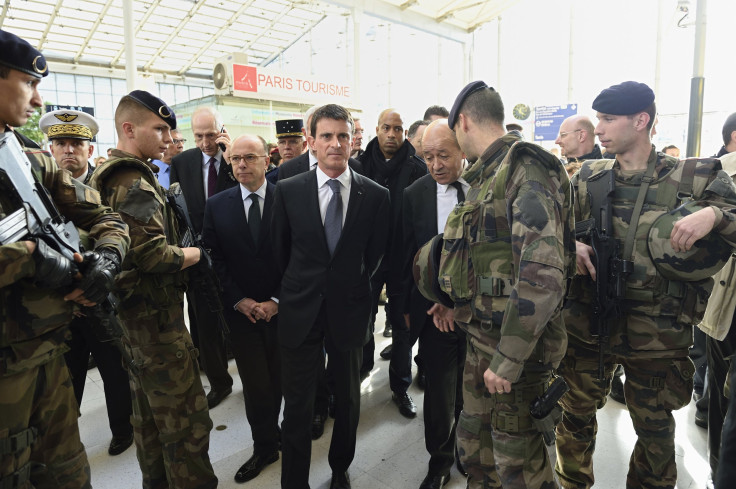Syrians In Raqqa Fear New Warplanes In Crowded Skies

By Suleman Al-Khalidi and Naline Malla
AMMAN, Jordan/BEIRUT (Reuters) -- Syrians living under Islamic State rule in its de facto capital of Raqqa fear they will pay the price for the group's Paris attacks with more air strikes.
The town, already being bombed by Russia and a U.S.-led alliance, came under heavy French air raids in the immediate aftermath of the killings in Paris that left 129 dead on Friday evening.
Twenty bombs were dropped, hitting a recruitment and training area and arms depot, the French defense ministry said.
Activists and a group monitoring the Syrian war, the Syrian Observatory for Human Rights, said the French air strikes appeared accurate, reporting no casualties.
The French air strikes had been preceded by an attack by warplanes from Russia, whose air force has pounded the city several times since September in its own campaign in support of Syrian President Bashar al-Assad.
"The skies of Raqqa were crowded with warplanes yesterday," said a member of the group Raqqa Is Being Slaughtered Silently.
"Several sides targeted the city, creating a state of terror among the citizens, who expect to be the ones who will pay the price for what Daesh did," said the activist, who was contacted by Reuters.
Daesh is an Arabic acronym for Islamic State.
"The waves of air strikes started with the Russians, who during the day targeted a residential neighborhood in the city, leaving five civilian martyrs including one child," said the activist, whose group opposes both Islamic State and the Syrian government.
The activist declined to be identified for security reasons.
The flow of information from Raqqa is highly restricted by Islamic State, which has sought to control communication and movement by its residents, activists say. Movement in the city has been further restricted since the French strikes.
French warplanes carried out nearly 30 raids which hit several city districts and their surroundings, activists said.
EXPLOSIONS
"The sounds of the explosions rocked the city and lit up the sky," said another Raqqa resident contacted by Reuters. "The coalition strikes are much more precise, but the Russian strikes are like the regime's strikes -- indiscriminate," said the resident, contacted by Skype.
Raqqa Is Being Slaughtered Silently posted a video with audio of the rumble of jets overhead which it said was from inside Raqqa. It said the strikes hit two Islamic State centers in Raqqa and an area where Kayla Mueller, a U.S. hostage, had been held before being killed earlier this year.
More than 30 explosions were heard in the Raqqa city area overnight, said Rami Abdulrahman, head of the British-based Syrian Observatory for Human Rights, which monitors the conflict using a network of sources on the ground.
Raqqa was the first city to fall to rebels fighting to overthrow Assad in 2013 and was controlled by a variety of groups until Islamic State rose to dominance and rapidly eliminated rival insurgents.
Islamic State's foreign fighters, together with their families, now form a sizeable section the city's population, according to a second Raqqa resident contacted by Reuters.
"Many of the residents of the city have fled, but at least 30 to 40 percent of its original inhabitants are still here," said the second resident.
Islamic State, which carries out regular beheadings and corporal punishment in Raqqa, also provides basic services, pays salaries and runs nearly all public institutions in the city, which has helped it gain some local support.
There are signs Islamic State has been planning for impending attacks. It has dug trenches around the city, laid mines and distributed ammunition, Raqqa Is Being Slaughtered Silently has reported.
The Raqqa Revolutionaries Front, a Syrian rebel group which is part of a new U.S.-backed alliance in northern Syria, has announced plans for an imminent ground offensive against Islamic State in Raqqa province.
The second resident said: "It’s only during the raids that people get panicky, otherwise life goes on normally. People have become used to this over the past year and a half."
(Writing by Sylvia Westall and Tom Perry; Editing by Janet Lawrence and Giles Elgood)
© Copyright Thomson Reuters 2024. All rights reserved.







